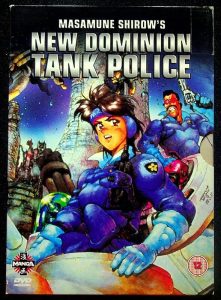

I know Halloween’s come and gone, but the horror continues! Once we started doing game reviews, Splatterhouse stood out in my sick little mind as one that needed to grace this website’s pages. Released internationally by Namco in November 1988, the arcade cult classic got attention (both positive and negative, though some say there is no bad press) for its over-the top themes of horror and gore. Some arcades (back when there were arcades) banned it altogether by request of parent groups. In fact, when it was ported to the Turbo Grafx 16 home system in 1990, the box came with a warning:
“The horrifying theme of this game may be inappropriate for young children… and cowards.”
Without further ado, let us jump in to one of the 1980s’ most shocking and controversial bits of gaming gibbitude.
PLOT/THEME
In Splatterhouse, the player takes the role of Rick, a parapsychology student who came to West Mansion seeking the great Dr. West. Upon arriving, Rick and his lovely girlfriend Jennifer are waylaid by West Mansion’s current inhabitants. Jennifer is of course carried off in what seems like a predictable plot hinge; Rick awakens later to find that he has been possessed by a mystical Terror Mask, which apparently provides him with the power to fight the monsters inhabiting the mansion. Your mission as Rick is to fight through the game to find Jennifer… or what has become of her, at the least.

GAMEPLAY
As Rick, you wander through a mostly linear side-scrolling environment, using punches and kicks as your basic attacks. It is clear that Rick is barefoot; No sane man would walk barefoot in West Mansion. This is because in addition to the malformed zombies and mutants, many hazards, from acid vomit to spinning blades, grace the floors and walls of the mansion. Weapons can be found and used along the way, everything from boards to cleavers, axes and even shotguns in one stage. Most levels have a boss monster of some kind, with a challenging but learnable pattern of behavior. Memorable bosses include the poltergeist that hurls silverware at you and Biggy Man (that is his actual name in all official documentation for the game), a meaty-thewed baghead monstrosity with chainsaws for hands.

Splatterhouse is fun to play, but has a pretty high difficulty curve; as with most side scrollers of the era, it pays to memorize sequences and recognize patterns in order to avoid hazards. While most monsters can be beaten to a pulp, some (like the chained up vomiting skeleton men) simply function as traps and can’t be defeated, only bypassed.
If you are interested in seeing the gameplay in action for yourself, this is the best playthrough I’ve been able to find.
GRAPHICS
The visual aspect is what drew Splatterhouse most of its positive and negative attention. Walls of melted flesh, vomiting mutants, bloated corpses on nooses, and other horrors abound in pretty gruesome detail. While thrilling to your average teen horror hound, parents and advocacy groups took a dim view of the gore and horror themes. The game even pushed some other boundaries; one of the bosses is an inverted cross surrounded by severed heads.

“Evil Cross,” one of the game’s more controversial elements.
Controversy aside, the game is graphically advanced for its time and looks great. Animations are smooth and the detail on everything is as it should be in a horror themed visual: nauseatingly real.
SOUND/MUSIC
While it’s rare to actually hear much of the music when playing an arcade game in an actual arcade, the music is really good. The sound comes out in 8 channel stereo, crisp and clear. Many of the sound effects themselves are a bit cartoonish, but hey, it’s an arcade game. The sound still adds, overall, to the spooky and lethal feel of the game. A rip of the soundtrack can be found here.
—
While it’s unlikely that you’ll find a working cabinet of Splatterhouse anywhere but in private hands, the game was released for the Wii’s Virtual Console in 2007. It was also ported to various home gaming systems throughout 1989-1990, and spawned two notable sequels (for the Genesis/Mega Drive) and a remake (for the Xbox 360). All are great games in their own rights, but none made the impact the original did. The 80s was an era that weighed morality against freedom constantly; this game is but one interesting footnote of the era.


A dungeon full of chained-up, vomiting skeletons. Don’t step in the puke!
SPLAT! Hence the name, and all the fuss.
The first boss is just a bunch of these flesh-eating worms, chewing through rotten meat to get to your living flesh.
Special thanks to West Mansion Splatterhouse fanpage for reference material and some artwork.
-Bryan Eddy-



